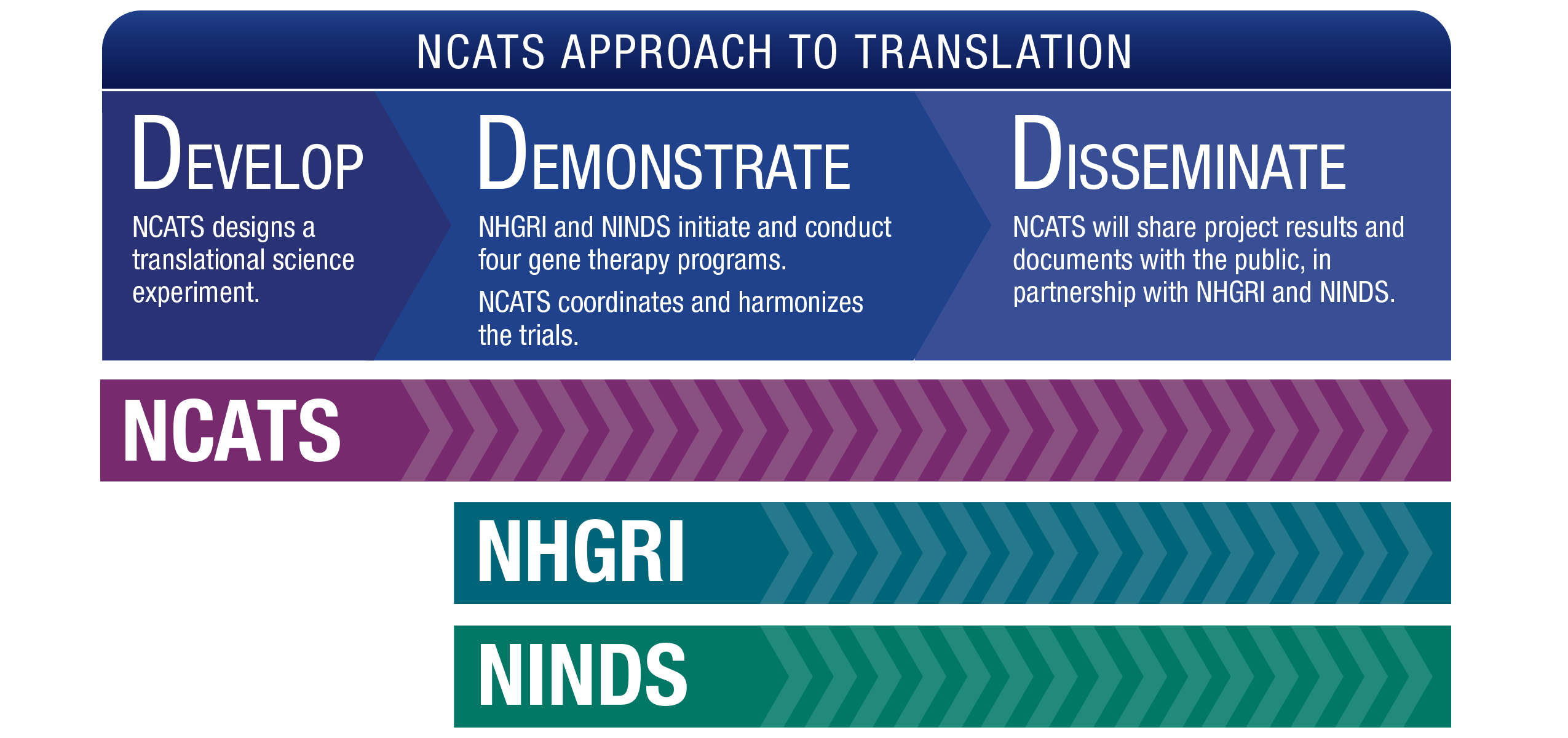The U.S. Food and Drug Administration (FDA) has granted the National Institutes of Health (NIH)’s National Center for Advancing Translational Sciences (NCATS) an orphan drug designation for AAV9-hPCCA (NCATS-BL0746), an investigational gene therapy for the treatment of propionic acidemia resulting from a deficiency of Propionyl-CoA Carboxylase, alpha subunit (PCCA). Propionic acidemia is an inherited metabolic disease. Patients with propionic acidemia cannot break down dietary protein, which leads to chronic, sometimes life-threatening conditions, including metabolic imbalance, cardiomyopathy, kidney disease, and other serious complications. Some patients are offered liver transplantation as a treatment because dietary and medical management are often not effective.
AAV9-hPCCA is a novel gene therapy candidate that uses adenovirus-associated virus serotype 9 (AAV9), a viral vector that has been used in multiple gene therapy clinical trials to deliver therapeutic transgenes to diverse tissues and cell types. It is potentially useful for a significant percentage of genetic diseases.
AAV9-hPCCA is one of four gene therapies that will be developed in NCATS’ Platform Vector Gene Therapy (PaVe-GT) program, a pilot project that is aimed at increasing the efficiency of clinical trial startup for gene therapies. AAV9-hPCCA and the three other gene therapies in the PaVe-GT program will all use the same capsid and the same manufacturing methods to test whether holding those factors constant would increase the efficiency of gene therapy trial startup. Notably, since all collaborating partners are within the NIH, the PaVe-GT program can test this in a transparent manner. Regulatory materials from the program will be made publicly available, so they can be used to benefit subsequent AAV gene therapy efforts.
Orphan drug designations confer important benefits for rare disease drug developers, including exemption from user fees, tax credits, and extended market exclusivity. However, the PaVe-GT team also had other considerations in mind when it applied for this designation.
“Our goal,” explained P.J. Brooks, Ph.D., Acting Director of NCATS’ Division of Rare Diseases Research Innovation, “is to put the broadly relevant results, materials, and regulatory filings from the PaVe-GT program into the public domain. By sharing a successful orphan drug designation application with the public, we can reduce the amount of time it takes for other scientific teams to produce orphan drug designation applications of their own, an activity that can be particularly burdensome for parties interested in developing gene therapies for diseases with very small populations.”
“AAV is a gene therapy platform that holds great promise for many monogenic diseases, including rare diseases that are too rare to attract traditional commercial interest,” noted Elizabeth Ottinger, Ph.D., Deputy Director for Programs of the NCATS Therapeutic Development
Branch. “However, gene therapy developers for extremely rare diseases often have very limited experience navigating the regulatory process. Access to a successful orphan drug designation application will be very helpful to groups who are advancing their first orphan candidate.”
The PaVe-GT team, a synergistic collaboration across four NIH Institutes, anticipates releasing the AAV9-hPCCA orphan drug designation application and the FDA’s response letter to the public in 2022.

Charles Venditti, M.D., Ph.D., a Senior Investigator in the Metabolic Medicine Branch of the National Human Genome Research Institute, led the scientific team that identified the AAV9-hPCCA gene therapy candidate. “Receiving an orphan drug designation for AAV9-hPCCA is an important milestone for patients with PCCA, but there are many diseases that could benefit from a PaVe-GT approach,” Dr. Venditti said. “It’s time to demystify and streamline important regulatory processes. We’re proud that other scientific teams will be able to model their orphan drug designation applications after the application submitted for AAV9-hPCCA.”
“In addition to releasing our application to the public, the PaVe-GT team is preparing a paper with tools and required information for navigating orphan drug designation applications,” explained Dr. Ottinger, who leads project management of all four PaVe-GT gene therapies as part of the NCATS Therapeutics for Rare and Neglected Diseases program. “We are 100% committed to shifting the learning curve and increasing the efficiency of gene therapy development for rare diseases.”
3/30/23 Update: Visit the PaVe-GT Resources page for ODD Designation resources, including the lightly redacted designation request for AAV9-hPCCA, and an ODD Designation request template.

